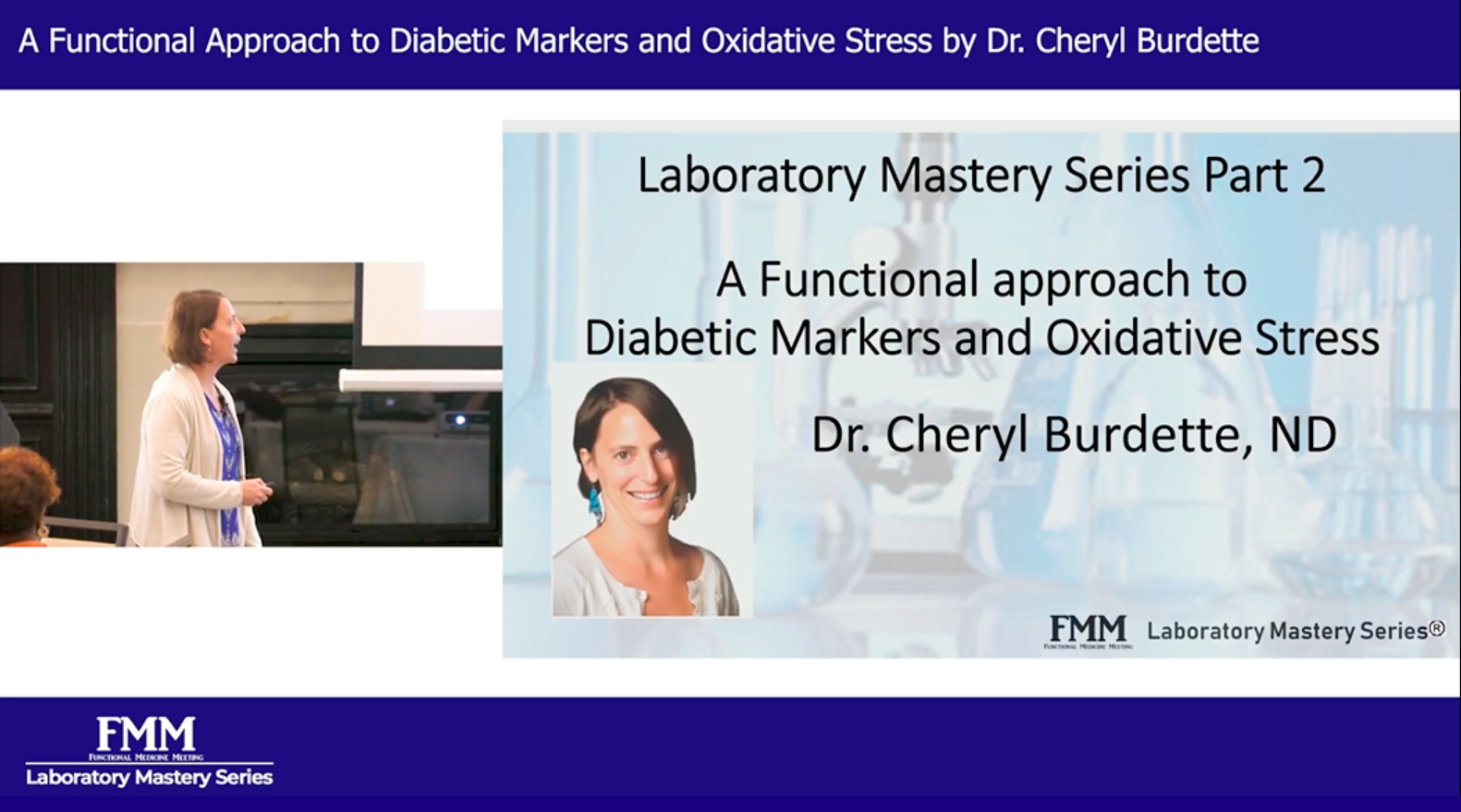Description
This lecture will focus on conventional markers such as HgA1c, Insulin and Glucose and examine the pros and cons of these markers as well as what functional ranges that are supported by the research. While these markers help us to assess efficacy of treatment, we will also look at root cause markers that help to understand the uniqueness about each patient’s diabetes and the process that drives it. Research regarding the metabolic continuum and diabetes shows that the condition is not only driven by glycation, but also by oxidation. We will review markers of oxidative stress as they relate to diabetes. Alessio Fasano, Harvard researcher who popularized Zonulin, a marker of gut-based permeability, demonstrated the connection between leaky gut and type I and type II diabetes. We will examine stool culture, amino acids and RBC mineral analysis and unique relationships to diabetic management and how reference ranges are altered. In addition to diagnostic work up we will be focused on protocols for diabetic care by looking at “diabetic types” to best chose suites of nutritional support, individualized to specific concerns. By understanding metabolic impact on organ sites alongside markers of evaluation, we can talk about successful long-term remission of many cases on the metabolic continuum. Diabetes is one of the fasted growing epidemics in medicine. Not only is it increasing in adults, but in children as well. Diabetes is increasingly connected to and considered a comorbidity for leading killers such as heart disease and cancer.
Key Learning Objectives:
Examine conventional markers of diabetic control, and understand the limitations and strengths accordingly
Examine functional markers of diabetic control, understanding different root cause of metabolic syndrome to more effectively improve metabolic control
To review natural therapies and build effective protocols for various “diabetic types.”
To understand the the statistical importance and population demographics in terms of cause
To understand presenting signs and symptoms of not only diabetes, but prediabetes as well
To understand medications used to treat, and specific drug/nutrient interactions
To understand conditions that are interrelated and will also be effected by diabetes
 Dr. Cheryl Burdette
Dr. Cheryl Burdette
Current Position: Director of Naturopathic Medicine at Progressive Medical. I serve as a staff physician, and educational director. I have been in private practice since 2001. I manage the Naturopathic residency program that is focused on integrative medicine and nutritional biochemistry. I am the Research and Outreach director for Xymogen, and Inc.500 supplement company, and serve on their BOA. I am owner and president of a nutritional lab, Dunwoody Labs, for which I design clinical profiles and train clinicians in their utilization. At Dunwoody labs I am also involved in nutritional trials and translational research. I am chief advisor for on-going clinical trial department of the laboratory. I also serve on an independent IRB giving feedback concerning various studies in the area of integrated medicine. I lecture internationally and nationally for IFM, A4M, MMI, and ACAM as well as many other conferences. I wrote and designed the curriculum for Advanced Medicine’s Academy online certification program. I am called upon yearly to do grand rounds at all the major Naturopathic medical schools. I teach Clinical and Nutritional Oncology at the University of Bridgeport and am part of the faculty at the University of Miami that is the first allopathic school to require integrative medicine. I am also adjunct faculty at George Washington University, the first PhD program in integrative medicine.

